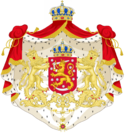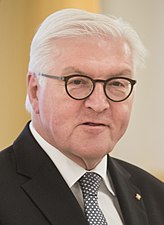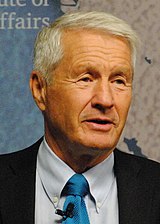Prime Minister of Nidwalden
| Prime Minister of Nidwalden | |
|---|---|
| Premierminister von Nidwalden (Nidwaldeser) | |
 | |
| Style | Her Excellency (formal) Prime Minister (informal) |
| Residence | 4 Rennweg, Cologne, Nidwalden |
| Seat | Nidwaldeser Parlament |
| Appointer | The Monarch appoints the party leader who commands the confidence of the Parliament |
| Term length | While commanding the confidence of the majority of the House of Commons. No term limits are imposed on the office. |
| Inaugural holder | Otto von Metternich |
| Formation | 24 July 1815 |
| Website | www |
 |
|---|
| This article is part of a series on the politics and government of Nidwalden |
|
|
The Prime Minister of the Grand Duchy of Nidwalden (Nidwaldeser: Premierminister von Großherzogtum Nidwalden) is the head of government of Nidwalden. The Prime Minister presides the executive of Nidwalden and has an important position in the legislature, in both cases, the elected person works with the Cabinet and the President of the Parliament. The actions and policies taken by the Office of the Prime Minister, the Cabinet and the Parliament are collectively accountable to the Monarch. By law, the position has equal authority among others Ministers but the Prime Minister is responsible of having a coordinated policy and reaching and protecting consensus in the Cabinet. The current Prime Minister is Charlotte Mann from the Rechte Party, she is in office since March 1, 2018.
The position of Prime Minister was created with the introduction of the first Constitution and the parliamentary system in the politics of Nidwalden, Otto von Metternich was elected in 1815 after the first universal elections. The office has been under the administration of the Rechte for more than 20 terms while the Social Democratic Party has held the office 9 times. Over the years, the office gone under significant changes during this time to protect its independence and authority from the Monarch but also to not being able to hold immense power over the legislature. The Prime Minister is elected by universal (male and female) suffrage and does not have a limit length, although legislatures have an usual period of five or four years and calling for elections is a common practice by Prime Ministers. After every election the party that won a majority (or the leader party of a coalition) appoints a formateur that holds talks between members of to designate a Prime Minister that is going to be voted later in the Parliament; until the social democrat administration of Helmut Talvi (1990-1997) the Monarch had a purely ceremonial influence in the process, however, it was removed in 1994, being Helle van Hoorde (1997-2000) the first Prime Minister elected without influence of the Monarch. The only way of the Parliament to end a government is through a motion of no confidence that must have at least the majority of the total of votes in the Parliament. Through the political history of Nidwalden, only the Skaarup administration (Democratic,1982-1984) was forced to announce anticipated elections, however, the Parliament has never made use of the motion of no confidence.
Nidwalden was one of the first countries in Astyria to have a woman in the position of Prime Minister in 1919 with Helle Johansen, since then seven women have presided the Grand Duchy, three from the Rechte (including the actual Prime Minister Charlotte Mann) and four from the Social Democratic Party.
List of Prime Ministers
Living former Prime Ministers
Lars Frey
Nationalist Party
(1984-1990)Helle van Hoorde
Social Democratic
(1997-2000)Johan Wandel
Democratic
(2000-2003)Torsten Heunicke
Social Democrat
(2003-2010)Mette Hackenholt
Social Democratic
(2010-2018)





